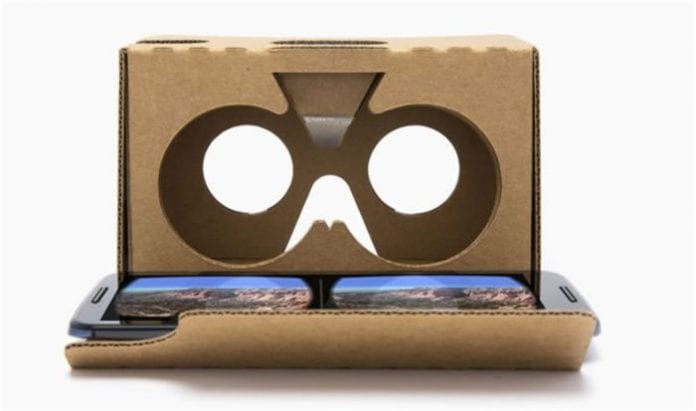Google might be going on hard for Virtual Reality. The company is also making it clear that it doesn’t believe any platform has more virtual reality content other than its own service YouTube.
But before all that, the company has to ask the questions, how many people know about virtual reality? Hoe many people understand it and how many know about the product named Google Cardboard which is able to let users watch VR videos via their smartphones?
Clay Bavor, the Vice President of Virtual Reality at Google said that the amount of people who used the technology at the moment is a rounding error. The number is close to zero percent of the world. He said that virtual reality was nothing but an unknown in the outside world. The Google executives believe that the adoption of the technology on people’s smartphones will see people getting the technology more often.
Virtual Reality is a technology that lets users wear customized devices over their eyes, and they can see from the devices images which appear to be real. Media companies and various organizations have been looking at ways they could make use of the technology. Companies such as BMW have employed the technology in its advertising, where users can wear the devices and experience the racing feeling that racers feel.
At an event in the Cannes, Google released their first ever list for a first ever list of YouTube ads which had 360-degree technology in them. BMW is topping the list, and the list also includes McDonald’s, Oreo and Hyundai. As of now, Google has already distributed close to 5 million devices of the Google Cardboard. Other competitors in the VR market such as Samsung, HTC and Facebook are all pushing forward with their own creations.
However, the VR headset could still do with a considerable push. Google plans to release, Daydream, which is a new software platform created for virtual reality and which will be incorporated into Android devices. The idea that there will Daydream supported devices by this fall in various of the retail locations is surely a massive push in the right direction for the VR technology. Aaron Luber, the head of the Google VR partnerships said that the software would enable the technology to become more accessible. It would also include partners such as Samsung and HTC.
At the moment, while they await the debut of Daydream, Google will patiently grow its user base. Mr. Bavor spoke of some amazing future possibilities when he said that he imagined the world where a family is vacationing would be able to record their live experiences and then 10, 20 years later they would be able to watch those moments through VR technology.









